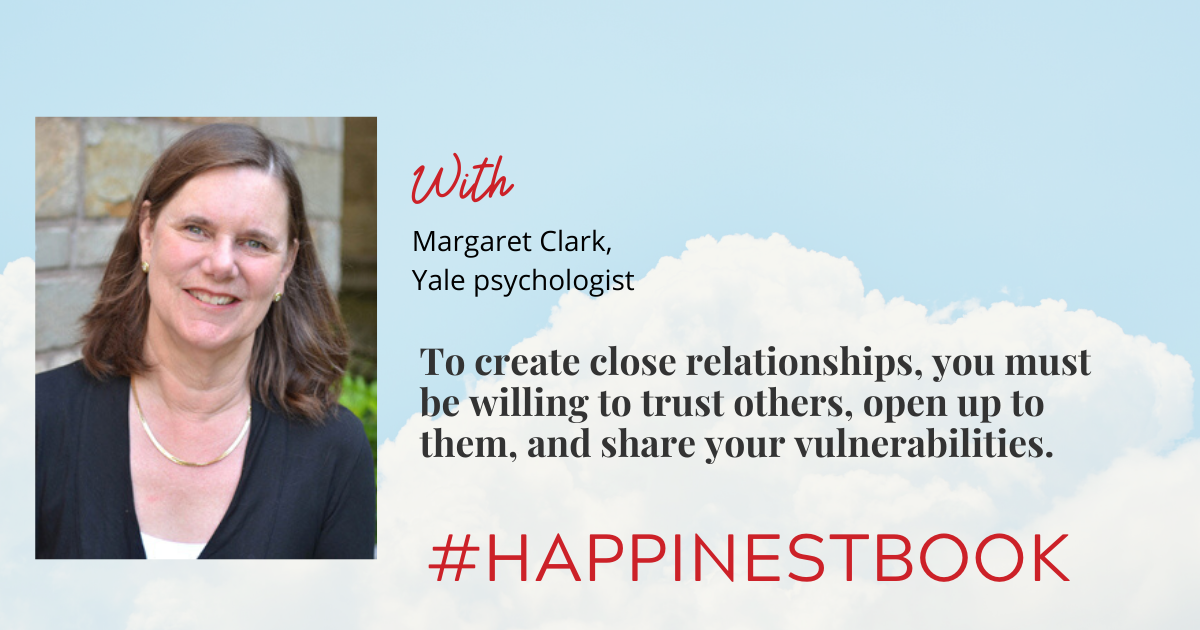Develop Close Relationships by Sharing Vulnerabilities and Emotions
Margaret Clark is a psychologist at Yale University and one of the world’s leading experts on personal relationships. Margaret and her husband Fred have lots of relationships—especially with students. They are in charge of 400 Yale undergraduates as heads of the Trumbull Residential College.
Did you like this episode? Please feel free to share it using the social media buttons below. I’d also be VERY grateful if you could rate, review, and subscribe to HappiNest on Apple Podcast, Spotify, Stitcher or Google Play.
What you’ll learn about in this episode:
- All people want to form relationships, but human beings are “self-protective” and don’t want to make the first move because they fear social rejection.
- If you want to create new relationships, you’ve got to “have some guts— a thick skin.” You must be willing to take the first step.
- Optimists, who have a positive world view in general, are generally optimistic that others will want a relationship with them.
- Sharing a concern, foible or vulnerability is a great way to develop a meaningful relationship. When you share worries or concerns, you open the door for others to give support. Mutual supportiveness is what friendships are all about.
- Both men and women say they have their closest relationships with women. People say they are closer to a mother than a father, to a grandmother than a grandfather, to a sister than a brother.
- Women give and seek support readily and are more willing than men to convey sadness or fear. Men are less likely to reveal vulnerabilities, especially in Western cultures where they are supposed to be strong. Men are more likely to display anger, which makes you appear strong and intimidating.
- You are most likely to forge meaningful friendships if you are involved in activities and come into close proximity with others.
- Staying in close touch with adult children correlates with having higher life satisfaction as long as you don’t depend on them as your primary relationship.
Did you like this episode? Please feel free to share it using the social media buttons below. I’d also be VERY grateful if you could rate, review, and subscribe to HappiNest on iTunes, Spotify, Stitcher or Google Play.





